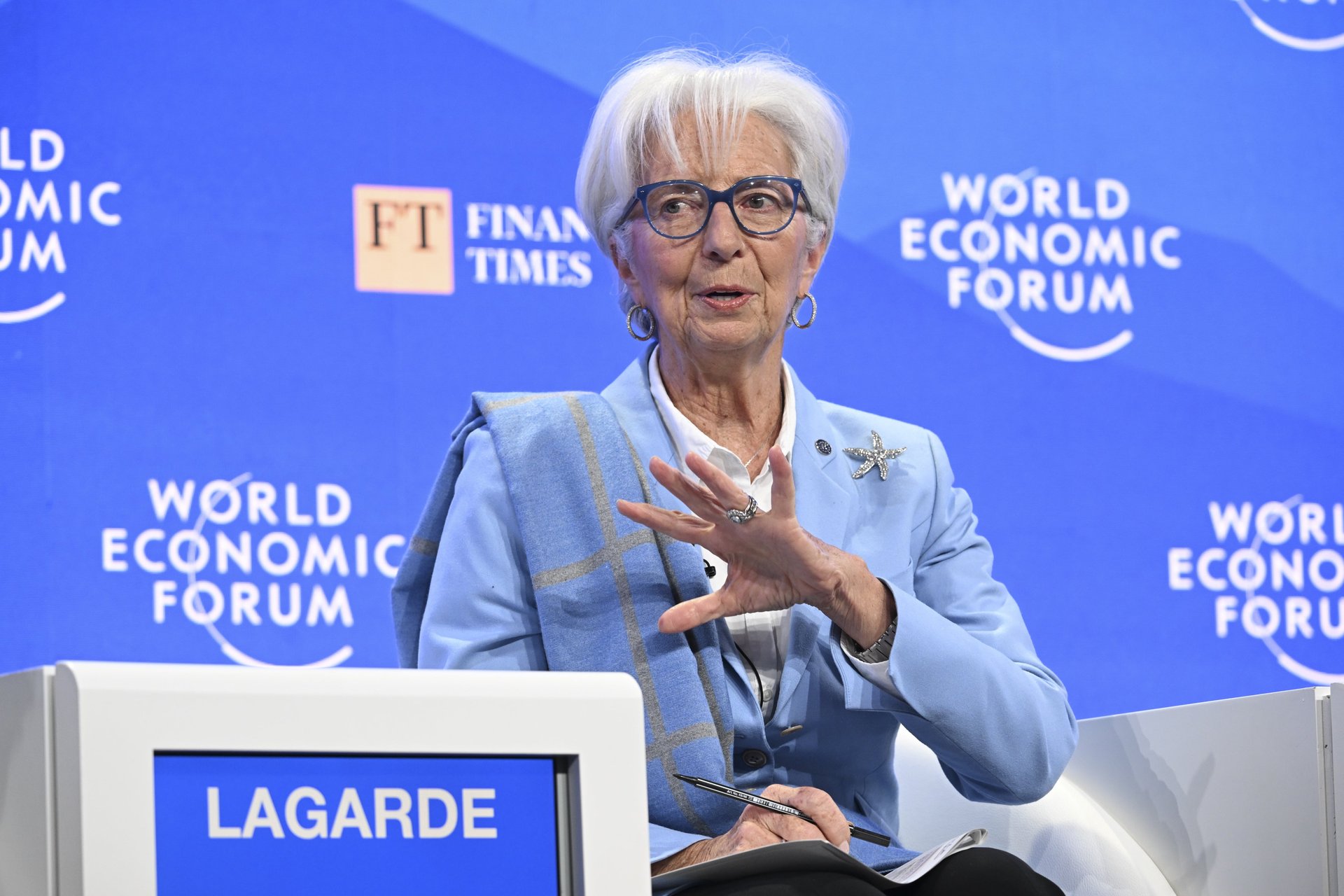Tackling Trump tariffs in Davos
European leaders wasted no time responding to the new American president's tariff threats.

Welcome back to our Need to Know: Davos newsletter!
Suggested Reading
For Gary Cohn, Davos 2025 must feel like déjà vu. “Even when I was there eight years ago, there was always a heavy debate on tariffs,” President Donald Trump’s former top economic adviser and the current vice chairman of IBM told Bloomberg TV. He urged patience: “Look, it’s Day One of a four-year administration. You don’t have to put tariffs on day one.”
Related Content
But Trump started with threats, if not outright tariffs, on Day One. And just hours after threatening 25% tariffs on Canada and Mexico, he turned his sights on China and Europe. His reasoning? A 10% tariff on China for “sending fentanyl to Mexico and Canada,” with a potential Feb. 1 start date. Trump cited the $350 billion trade deficit with the European Union and promised they’re “going to be in for tariffs,” too.
European leaders wasted no time responding. European Central Bank President Christine Lagarde warned that Europe must “be prepared” for U.S. tariffs, while U.K. Finance Minister Rachel Reeves tried to distance Britain from Trump’s crosshairs: “We are not a part of the problem here. We increased trade with President Trump last time he was in office.”
IMF Deputy Chief Gita Gopinath struck a more measured tone, calling Trump’s threats “very far from being in the very typical rules-based international trade environment.” But she’s not worried, at least not yet. She advised countries to “wait and see where the dust settles” on the specifics — which might unsettle even more today, with Trump’s rapid-fire policy moves.
Here’s what else is happening in Davos.
A man, a plan, a canal, Panama!
Trump’s canal claims hit a wall in Davos.
“The Panama Canal belongs to Panama. It was not a gift,” President Jose Raul Mulino Quintero declared during a panel, flatly rejecting Trump’s suggestions about taking control of the waterway. While dismissing Trump’s statements as “false,” Mulino Quintero assured that Panama isn’t getting distracted by the issue — it’s got treaties to back it up.
When asked if he was concerned about an invasion, Reuters reported that Mulino Quintero responded, “Be serious, be serious.”
Meta’s pivot
Nick Clegg defended Meta’s decision to scrap fact-checkers and boost political content across its platforms, just weeks before he hands over his duties to Trump ally Joel Kaplan. Speaking at Davos, the departing executive insisted Meta isn’t downgrading its commitment to truth — it’s just switching to a “crowdsourced or Wikipedia-style approach to misinformation” similar to X’s system. He called it more “scalable” than traditional fact-checkers, who he said have lost public trust.
When pressed on Meta’s new policies allowing comments and posts calling groups “filth” or LGBT people “mentally ill,” Clegg argued it’s “unfeasible” to ban speech that’s permitted “on the floor of the House of Congress.” The Facebook parent company will still spend $5 billion on “integrity” this year, he added, maintaining “the industry’s most sophisticated community standards.”
Spain’s counter-pivot
Spanish Prime Minister Pedro Sánchez brought fire to Davos, accusing tech billionaires of plotting democracy’s downfall. His rallying cry sounds pretty familiar: “Let’s make social media great again.” His three-point plan: end anonymity with mandatory digital IDs, crack open the “black box” of social media algorithms, and hold platform owners personally accountable. Taking direct aim at Meta’s recent moves, Sánchez compared social networks to “invaders hidden in the body of a Trojan horse,” and demanded Europe enforce its digital service act as “non-negotiable.”
Wall Street’s take (with a side of reconciliation)
Jamie Dimon arrived in Davos with warnings and olive branches. The JPMorgan CEO cautioned that U.S. stocks look frothy. “Asset prices are kind of inflated,” he told CNBC, noting we’ll “need fairly good outcomes to justify those prices.” But he saved his warmest words for a former adversary: “Elon and I hugged it out,” Dimon told CNBC in another interview, praising the Tesla chief as “our Einstein” and expressing eagerness to help Musk’s companies after settling a $162.2 million legal dispute over Tesla stock warrants.
Let’s see if any other power players decide to “hug it out” as Davos continues. We’ll be back in your inbox tomorrow.
—Jackie Snow